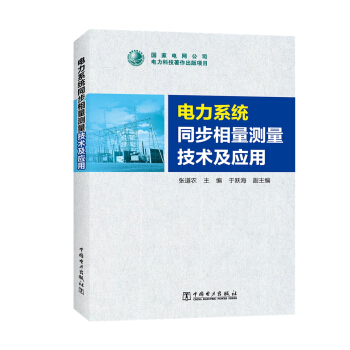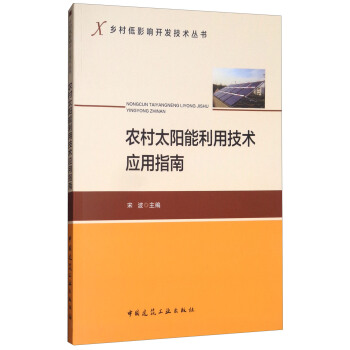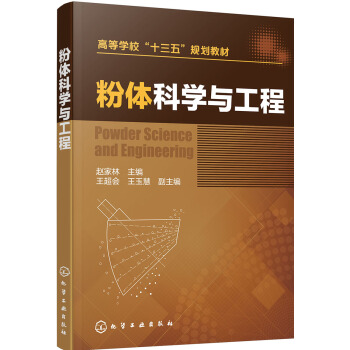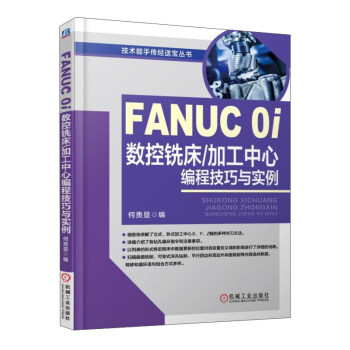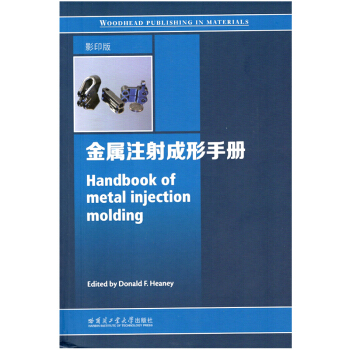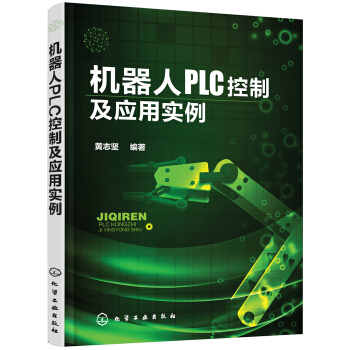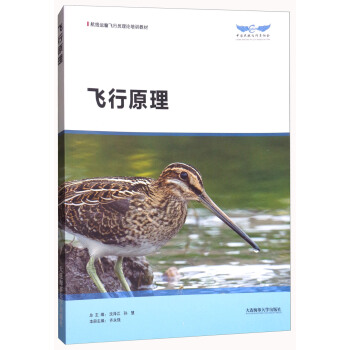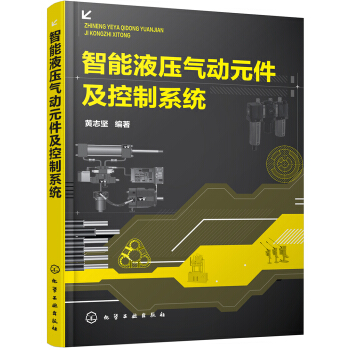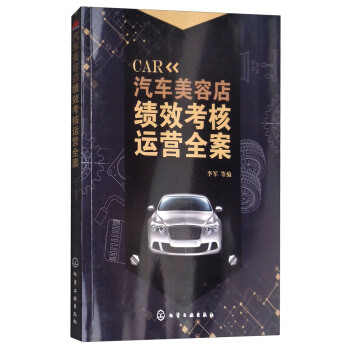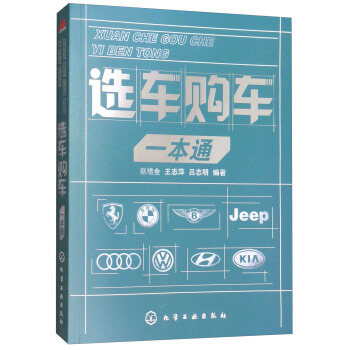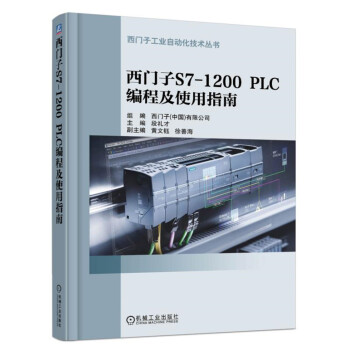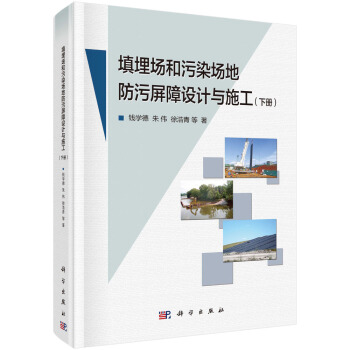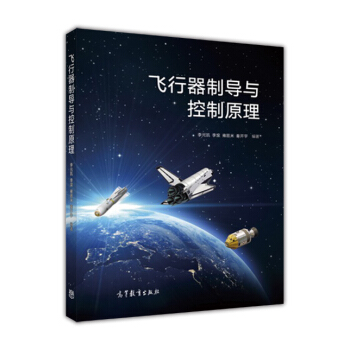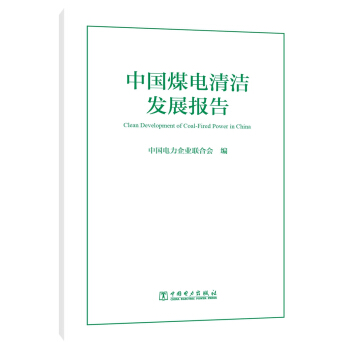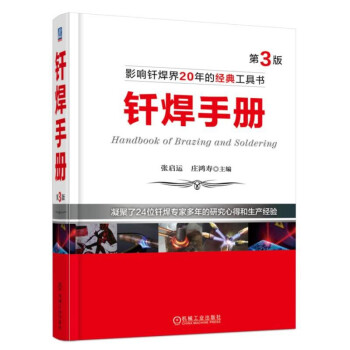

具体描述
产品特色
编辑推荐
适读人群 :机械、电子、家电等部门从事金属材料精密连接技术工作的科研、生产技术人员《钎焊手册》从初版起就对我国的钎焊有很大的影响。印象深的是有一年我们在天津的一个焊接展览会上展卖焊接图书,《钎焊手册》受到钎焊企业技术人员的好评,到后一天我们打包撤展了,在把一捆捆的书往车上搬时,还有人追来问还有没有《钎焊手册》了。
《钎焊手册》的第2版时我听说美国的“Brazing Handbook”和“Soldering Handbook”在修订时也参考了我们的《钎焊手册》。
现在《钎焊手册》第3版出版了,这是在前两版的基础上①补充钎焊领域进展的新资料;②增加必要的新内容;③对某些章节进行重写。这次修订编写的原则:①重实践,丰富资料数据;②重视国内外有关参考文献的引用,作为了解有关内容的进一步延伸;③尽可能描述实践和操作,使实际工作者得以从中获取有用的资料和经验。相信《钎焊手册》第3版能给广大从事钎焊与精密连接工作的读者带来更技术盛宴。
内容简介
《钎焊手册》是一本应用理论和实际工作经验总结并重的工具书。全书以被钎焊的母材为主线进行叙述:对铝、铜、钢、不锈钢、高温耐热合金、难熔金属、钛、锆、铍、镁、硬质合金、碳、金刚石、半导体、陶瓷、贵金属、复合材料、特种材料的钎焊,包括部分材料的软钎焊都进行了详尽的介绍。参加本手册每一章编写的作者,都是在该领域中有多年工作经验和科研成果的专家和技术人员,他们在第2版的基础上,收集了大量的资料,进行了修订或重写,因此本书内容有一定的深度和广度。书中还加强了应用理论的阐述,特别是在第1章绪论中将界面传质理论通俗地引入钎焊领域,并用以阐明和控制钎焊过程,有较新的意义。目录
目录Contents
第3版前言Preface of the Third Edition
第2版前言Preface of the Second Edition
第1版前言Preface of the First Edition
第1章绪论Chapter 1 Introduction1
1.1钎焊方法的原理和特点Principle and Characteristic of Brazing and Soldering Technique1
1.2熔态钎料对固体母材的润湿和铺展Wetting and Spreading of Molten Filler Metal on a Solid Base Metal1
1.2.1固体金属的表面结构The Surface Structure of Solid Metal1
1.2.2熔态钎料与固体母材的润湿Wetting of Molten Filler on Solid Base Metal2
1.2.3熔态钎料在钎剂(第二液体)中与母材间界面张力的变化Change of Interfacial Tension between Molten Filler and Base Metal Immersed in a Fused Flux(a second liquid)4
1.2.4金属母材表面的氧化膜及其去除机制Oxide Film on Base Metal and its Removal Mechanism6
1.2.5熔态钎料在固体母材上的铺展Spreading of Molten Filler Metal on Solid Base Metal7
1.3熔态钎料与固体母材的相互作用Reaction of Molten Filler with Solid Base Metal9
1.3.1熔态金属与固体金属的相互作用Reaction of Molten Metal with Solid Metal9
1.3.2钎料的构成Construction of Filler Metals11
1.3.3熔态钎料在母材间隙中的流动和钎缝结构的不均匀性Flowing of Molten Filler Metal in the Clearance of Base Metals as well as Inhomogeneity of the Formed Fillet14
1.3.4熔析与熔蚀Liquation and Erosion15
1.4钎缝中熔态钎料的凝固和钎缝的金相组织Solidification of Molten Filler Metal in Clearance and the Micrographic Structure of the Fillet16
1.4.1共晶钎缝组织The Structure of Eutectic Fillet16
1.4.2晶间渗透组织The Fillet Structure with Intercrystalline Penetration16
1.4.3有化合物生成的钎缝组织The Fillet Structure with Intermetallics17
1.5钎剂、钎料的选择与搭配Selection and Matching of Fluxes with Filler Metals18
1.5.1钎剂的选择Selection of Fluxes18
1.5.2钎料的选择Selection of Filler Metals20
1.5.3钎剂和钎料的搭配Matching of Filler Metal with Flux21
1.6钎焊工艺Technology of Brazing and Soldering21
1.6.1接头的形式与钎料在钎缝中的流动性Joint Types and Flowability of Molten Filler Metal in the Clearance21
1.6.2加热方法Methods for Heating22
1.6.3工件的升温速度和冷却速度Heating and Cooling Rate of Workpieces in Brazing Process23
1.6.4钎焊接头的保温处理和结构的弥散Annealing for Brazed Joints and Structure Dispersion in the Fillet23
参考文献References25
第2章铝及铝合金的钎焊Chapter 2 Brazing and Soldering of Aluminum and its Alloys27
2.1概述Introduction27
2.2铝及铝合金的编号Designations of Aluminum and its Alloys27
2.3铝及铝合金的理化性能Physical and Chemical Properties of Aluminum and its Alloys28
2.3.1铝及铝合金的物理性能Physical Properties of Aluminum and its Alloys28
2.3.2铝及铝合金的化学性能Chemical Properties of Aluminum and its Alloys39
2.4铝氧化膜的本质及其在加热时的变化Nature of Oxide Film on Aluminum and its Change during Heating40
2.5铝钎剂Fluxes for Aluminum Brazing and Soldering41
2.5.1铝的硬钎剂Fluxes for Aluminum Brazing41
2.5.2铝的软钎剂Fluxes for Aluminum Soldering53
2.6钎焊时铝氧化膜的脱除机制Removal Mechanism of Oxide Film on Aluminum during Brazing55
2.6.1铝氧化膜与熔盐钎剂的相互作用Interaction of Oxide Film on Aluminum with Molten Salt Flux55
2.6.2真空环境下金属蒸气对铝氧化膜的破坏Disruption of Oxide Film on Aluminum by Metal Vapor in Vacuum Environment57
2.7铝钎料Brazing Filler Metals and Solders for Aluminum Alloys58
2.7.1Al-Si系钎料(液相线温度范围570~630°C)Filler Metals of Al-Si Series(melting range 570~630°C)58
2.7.2Al-Si-Cu-Zn系钎料(液相线温度范围500~577°C)Filler Metals of Al-Si-Cu-Zn Series(melting range 500~577°C)60
2.7.3Al-Cu-Ag-Zn系钎料(液相线温度范围400~500°C)Filler Metals of Al-Cu-Ag-Zn Series(melting range 400~500°C)61
2.7.4Al-Ge-Si系钎料(液相线温度范围425~500°C)Filler Metals of Al-Ge-Si Series (melting range 425~500°C)61
2.7.5Zn-Al系钎料(液相线温度范围382~400°C)Solders of Zn-Al Series(melting range 382~400°C)62
2.7.6Cd-Zn系钎料(液相线温度范围265~350°C)Solders of Cd-Zn Series(melting range 265~350°C)64
2.7.7Sn-Zn系钎料(液相线温度范围198~260°C)Solders of Sn-Zn Series(melting range 198~260°C)64
2.7.8Sn-Pb系钎料(液相线温度范围183~270°C)Solders of Sn-Pb Series(melting range 183~270°C)65
2.7.9Pb-Bi系钎料(液相线温度范围124~200°C)Solders of Pb-Bi Series(melting range 124~200°C)66
2.8铝的复合钎焊材料Composite Fillers for Aluminum Brazing or Soldering66
2.8.1铝钎焊板Aluminum Brazing Sheets66
2.8.2药芯及药皮铝钎焊丝Flux Cored and Flux Coated Filler Metals for Aluminum Brazing or Soldering67
2.8.3钎料-钎剂粉烧结的复合铝钎焊条(丝)Composites of Sintered Powder Filler Metals with Flux for Aluminum Brazing68
2.8.4铝钎料膏Aluminum Brazing Paste68
2.9铝钎焊中的一些特殊技艺Some Special Skills in Aluminum Brazing and Soldering68
2.9.1用金属镓来作为界面活性剂进行铝合金零件的精密扩散钎焊Gallium Used as a Surfactant for Precise Soldering of Aluminum Alloy Parts68
2.9.2用锗粉进行铝合金的无钎剂扩散钎焊Fluxless Diffusion Brazing of Aluminum Alloys with Germanium Powders69
2.9.3铝及铝合金的表面软钎焊钎涂改性Surface Modification of Aluminum Alloys by Solder-coating69
2.9.4铝的自钎软钎剂Self-soldering Flux Used for Soldering Aluminum Alloy Parts69
2.9.5铝合金面上敷以Nocolok钎剂-硅粉-合成树脂复合涂层A Composite Coating on Aluminum Alloys Made by Resinized Silicon and Nocolok Flux70
2.10铝钎焊的焊前准备和焊后处理Pre-brazing Preparations and Post-brazing Operations70
2.10.1接头和夹具的设计Joint and Jig Design70
2.10.2工件的预清洗Pre-cleaning of Workpieces to be Brazed72
2.10.3工件焊后的清洗Post-braze Cleaning of Workpieces74
2.10.4镀覆Finishing75
参考文献References76
第3章铜和铜合金的钎焊Chapter 3 Brazing and Soldering of Copper and Copper Alloys80
3.1概述Introduction80
3.2钎焊性Brazability and Solderability84
3.2.1纯铜Copper84
3.2.2普通黄铜Brasses84
3.2.3锡黄铜Tin Brasses84
3.2.4铅黄铜Leaded Brasses84
3.2.5锰黄铜Manganese Brasses84
3.2.6锡青铜Tin Bronzes84
3.2.7铝青铜Aluminum Bronzes84
3.2.8铍铜Beryllium Copper85
3.2.9硅青铜Silicon Bronzes85
3.2.10铬铜和镉铜Chromium Copper and Cadmium Copper85
3.2.11白铜合金Copper-nickel Alloys85
3.3钎焊接头间隙Clearance of Brazed Joint85
3.4软钎料Solders88
3.4.1镓基钎料Gallium Based Solders88
3.4.2铋基钎料Bismuth Based Solders89
3.4.3铟基钎料Indium Based Solders89
3.4.4锡铅钎料Tin Lead Solders89
3.4.5无铅钎料Lead Free Solders94
3.4.6高温锡钎料High Temperature Tin Solders106
3.4.7铅基钎料Lead Based Solders107
3.4.8镉基钎料Cadmium Based Solders107
3.4.9金基软钎料Gold Based Solders108
3.5硬钎料Brazing Filler Metals108
3.5.1对钎料的基本要求Demands on Brazing Filler Metals108
3.5.2钎料的分类Classification of Brazing Filler Metals108
3.5.3钎料的型号与牌号Designations of Brazing Filler Metals108
3.5.4银钎料Silver Filler Metals109
3.5.5低银钎料Low Silver Based Filler Metals123
3.5.6铜磷钎料Copper-phosphorus Filler Metals130
3.6钎剂Fluxes135
3.6.1钎剂的功能Functions of Brazing Fluxes135
3.6.2对钎剂的基本要求Demands on Brazing Fluxes135
3.6.3钎剂的分类及型号Classification and Type of Fluxes136
3.7软钎剂Soldering Fluxes136
3.7.1腐蚀性钎剂Corrosive Fluxes137
3.7.2弱腐蚀性钎剂Medial Corrosive Fluxes138
3.7.3无腐蚀性钎剂Non-corrosive Fluxes139
3.8硬钎剂Brazing Fluxes140
3.9表面准备Surface Preparation143
3.10接头设计Joint Design143
3.11钎焊方法和工艺Methods and Technology of Soldering and Brazing144
3.11.1铜Copper144
3.11.2黄铜Brasses144
3.11.3铜和黄铜软钎焊接头强度The Strength of Copper and Brass Soldered Joints144
3.11.4锰黄铜Manganese Brasses147
3.11.5铍铜Beryllium Copper148
3.11.6铬铜Chromium Copper148
3.11.7镉铜和锡青铜Cadmium Copper and Tin Bronzes148
3.11.8硅青铜Silicon Bronzes148
3.11.9铝青铜Aluminum Bronzes148
3.11.10锌白铜和锰白铜Copper-nickel Alloys149
参考文献References149
第4章电子工业中的软钎焊Chapter 4 Soldering in Electronic Industry151
4.1电子制造与软钎焊Electronic Manufacture and Soldering151
4.1.1软钎焊在电子工业中的地位The Position of Soldering Technique in Electronic Industry151
4.1.2电子制造与电子封装Electronic Manufacture and Electronic Packaging151
4.1.3电子工业中钎焊连接的特点及发展历程The Characteristic and Development Course of Soldering Technique in Electronic Industry152
4.2软钎焊连接的基本原理Fundamental of Soldering154
4.2.1软钎焊的定义Definition of Soldering154
4.2.2钎料与母材间的相互作用Interaction Between Solder and Base
前言/序言
《钎焊手册》第1版1999年问世,9年后的2008年出版了第2版,如今是2017年,距离第2版出版又是9年过去了。值得全体编者欣慰的是,这本手册无论是在钎焊研究领域还是在实际生产中都起到了良好的作用,在发表的科研论文上有较高的引用率。鉴于此,机械工业出版社有意延续这本手册的思路,修订出版第3版。这本《钎焊手册》广泛集合了国内许多学校、研究机构和生产单位的学者、专家和工程师,共同打造出这样一个平台,列出了与钎焊材料有关的物理、化学和力学性能的资料数据,阐述了钎焊材料的构成和钎焊的工艺过程,介绍了和钎焊有关的原理、工作机制以及世界钎焊领域内研究的最新进展。特别是编者们还毫无保留地贡献出了自己多年来的研究心得和钎焊的生产经验。因此这本《钎焊手册》不单纯是一本手册,更确切地说是有关钎焊科技领域的一本专著。全体编者都衷心希望这些努力能够有助于我国钎焊科技事业的进一步发展。
时光流逝,我们当中的一些年老的专家学者,逐渐淡出了自己终身从事的钎焊科技事业。特别使我们怀念的是钎焊科技界的元老,哈尔滨工业大学的钱乙余教授。他2016年的离世是中国钎焊科技界不可弥补的损失,多年来他曾为本手册的编辑出版提出过许多有益的建议。在现今的编者群中,有的仍在老骥伏枥,有的正处于一生工作的辉煌时期,更使我们感到欣慰的是有了一批年轻的学者加入了这次编辑的行列,衷心祝愿这些中青年编者们在钎焊领域取得更大的成就。同时,对支持和关心本手册的钎焊工作者们表示衷心的感谢。
《钎焊手册》的第3版继续由张启运、庄鸿寿担任主编。各章的编写分工如下:
第1、2章 张启运(北京大学)
第3章 庄鸿寿(北京航空航天大学)、虞觉奇(湖南大学)
第4章 吴懿平(华中科技大学)
第5章 庄鸿寿(北京航空航天大学)、张雷(郑州机械研究所)
第6、7章 庄鸿寿(北京航空航天大学)
第8章 庄鸿寿(北京航空航天大学)、田招弟(北京真空电子技术研究所)
第9章 李晓红(中国航空研究院)、陈波(北京航空材料研究院)
第10章 庄鸿寿(北京航空航天大学)、李红(北京工业大学)
第11章 钟素娟(郑州机械研究所)、沈元勋(郑州机械研究所)
第12章 马佳(郑州机械研究所)、龙伟民(郑州机械研究所)
第13章 张青科(中国科学院宁波材料技术与工程研究所)、田招弟(北京真空电子技术研究所)
第14章 吴爱萍(清华大学)
第15章 张永清(中国科学院电子学研究所)、陈沛生(北京真空电子技术研究所)
第16章 刘泽光(昆明贵金属研究所)
第17章 李晓红(中国航空研究院)、陈波(北京航空材料研究院)
第18章 李晓红(中国航空研究院)、毛唯(北京航空材料研究院)
编者
用户评价
我拿到的这本《钎焊手册》给我的第一印象是那种沉甸甸的专业感,封面设计就透露着一股严谨的气息,没有花哨的装饰,只有清晰的书名,让人一眼就能明白它的核心内容。我不是那种每天都和金属打交道的人,但对于一些精密器械的组装和维修,我一直都觉得其中蕴含着非常精湛的技术。很多时候,我们看到的一些物件,比如高温炉具、空调管道、甚至一些航天器的部件,它们能够承受极端环境而不损坏,背后一定有非常强大的连接技术支撑。 我猜想,这本书的编写团队一定是非常资深的,他们可能汇集了多年一线实践经验的工程师和技术专家。在翻阅的过程中,我注意到书中大量的图例和表格,这些都不是随随便便就能做出来的。每一个图都仿佛是经过反复推敲,力求将最复杂的工艺流程清晰地呈现在读者面前。我设想,书中肯定会详细地介绍不同类型的钎料,比如铜钎料、银钎料、铝钎料等等,以及它们各自的熔点、流动性、强度和耐腐蚀性。 我尤其好奇,书中对于钎焊前的准备工作会有怎样的阐述。因为我一直觉得,很多技术的成功与否,关键在于前期的准备。比如,如何精确地计算间隙,如何选择合适的助剂,如何进行表面处理,这些细节决定了最终的连接质量。我想,这本书一定会有详尽的指导,告诉读者如何避免那些看似微小的疏忽,却可能导致最终产品出现致命缺陷。 此外,我还在想,这本书是否会涵盖一些不同材质之间的钎焊难题。比如,将两种截然不同金属进行钎焊,这本身就是一项巨大的挑战。书中是否会提供针对性的解决方案,指导读者如何选择合适的钎料和工艺,以克服不同材料之间的冶金兼容性问题。这对于那些从事复合材料制造或者需要进行异种金属连接的工程师来说,无疑是极其宝贵的知识。 我也在猜测,书中是否会涉及一些关于钎焊工艺的标准化和质量控制方面的内容。毕竟,在工业生产中,统一的标准和严格的质量控制是保证产品可靠性的基石。我想,这本书肯定会包含一些行业标准、测试方法和质量判定准则,让读者能够了解如何确保钎焊质量达到预期的要求。 我设想,这本书或许还会讲述一些实际案例,通过分析一些成功的或失败的钎焊项目,来加深读者的理解。这样的案例分析,往往比纯粹的理论讲解更能吸引人,也更能让人从中吸取经验教训。 总而言之,《钎焊手册》这个名字本身就承载着一种责任感和专业性。我期待它能够成为我探索金属连接奥秘的一本得力助手,为我打开更广阔的知识视野。
评分《钎焊手册》这个名字,让我第一时间联想到那些充满力量的金属物件,它们在严苛的环境下承受着巨大的压力,而维系它们完整性的,往往是那些看不见的、却至关重要的连接。我本身对物理世界有着天然的好奇,尤其喜欢探究那些能够将不同物质巧妙结合的技术。所以,当看到这本书时,我仿佛看到了一个通往金属连接奥秘的钥匙。 我脑海中勾勒出的画面是,书中充斥着各种精确的图表和数据,它们将抽象的理论变得触手可及。我希望它能详细阐述不同钎料的构成,比如它们为何能够熔化并填充到母材之间,它们与母材之间是如何形成冶金结合的。这本书,我想,一定能解答我对于“粘合”的本质的疑问,它不是简单的物理粘附,而是一种更深层次的物质融合。 我设想,书中会有一部分内容,专门讲解如何根据不同的材料和使用环境,来选择最合适的钎料和助剂。比如,如果需要连接的是承受高温的部件,那么就需要选择熔点高、耐高温性能好的钎料;如果连接的是需要承受腐蚀的环境,那么就需要选择具有优异耐腐蚀性的钎料。这些选择上的细微差异,往往决定了最终连接的成败。 同时,我也非常期待书中能够深入探讨钎焊过程中温度控制的重要性。温度过高可能会导致母材的晶粒粗化,强度下降,甚至发生变形;温度过低则可能导致钎料流动不足,形成虚焊。我希望能看到书中详尽地描述不同钎焊方法所对应的最佳温度曲线,以及如何通过各种手段来精确地控制温度。 此外,我还在猜想,书中是否会涉及一些特殊情况下的钎焊技术,比如在真空环境下的钎焊,或者在惰性气体保护下的钎焊。这些特殊工艺,通常是为了保证钎焊接头的纯净度,避免氧化和污染,从而获得更高的连接质量。 我希望,这本书不仅仅是技术的罗列,更能传递一种工匠精神。它应该能够让读者体会到,每一个成功的钎焊,都凝聚着操作者对细节的极致追求,对材料特性的深刻理解,以及对整个工艺流程的精准把握。 这本书,在我看来,就是一本关于“融合”的艺术指南,它教会我们如何将分离的个体,通过严谨的科学与精湛的技艺,融合成一个更强大、更稳定的整体。
评分《钎焊手册》这个名字,自带一种扎实、可靠的气质。我一直觉得,很多我们习以为常的现代产品,它们之所以能够完美运行,背后都隐藏着无数精密的连接技术。而钎焊,作为一种重要的连接方式,它的重要性在我看来,绝不仅仅是“粘在一起”那么简单。 我试着去想象这本书的内容,它可能就像一个经验丰富的老师傅,在耐心地教导一位初学者。从最基础的原理讲起,比如钎焊与焊接的区别,它们各自的优势和适用范围。然后,会详细介绍各种钎焊的类型,比如接触式钎焊、感应钎焊、火焰钎焊等等,并且会配以清晰的图解,让我们这些门外汉也能大致理解它们的工作方式。 我特别期待书中能够有关于钎料选择的详细指南。因为我知道,钎料的成分和特性,直接决定了钎焊接头的强度、塑性、耐温性和耐腐蚀性。书中会不会列举不同类型的钎料,比如银基钎料、铜基钎料、铝基钎料等等,并详细说明它们各自的熔点范围、流动性、对不同母材的润湿性以及接头的机械性能。 此外,我也很好奇书中对于助剂的作用会有怎样的阐述。助剂在钎焊过程中扮演着至关重要的角色,它能够清除母材表面的氧化物,促进钎料的铺展,并防止钎料在冷却过程中氧化。我希望能看到书中对各种助剂的化学成分、作用机理以及使用方法进行详细的介绍。 我还设想,书中是否会包含一些关于钎焊的质量控制和检验方法。比如,如何通过目视检查来判断接头是否存在气孔、裂纹、未焊透等缺陷;是否会介绍一些无损检测的方法,比如超声波探伤、X射线探伤等,来评估接头的内部质量。 这本书,我想,不仅仅是一本技术手册,更是一份关于精益求精的承诺。它告诉我们,即使是看似简单的连接,背后也蕴含着深厚的科学知识和精湛的操作技艺。 我把它想象成一本能够“解密”金属连接的宝典,它能帮助我更好地理解我们身边那些坚固耐用的器械,它们是如何被巧妙地组合在一起的。
评分我拿到《钎焊手册》这本书,首先吸引我的是它那种实实在在的工业美学。厚实的封面,清晰的书名,没有多余的装饰,一切都显得那么直接而有力。我并不是科班出身的工程师,但对于机械制造的背后运作原理,一直充满了好奇。总觉得,很多看似坚固耐用的设备,其核心的连接技术才是最值得探究的。 我开始想象,这本书的扉页上,可能印着一句话,比如“连接的艺术,稳定的基石”。我脑海中浮现出,在各种极端环境下工作的设备,它们之所以能够持续运转,离不开每一个精密的连接点。而钎焊,作为一种重要的连接方式,其重要性不言而喻。 我猜测,书中必然会对各种钎焊的工艺流程进行详尽的描述。从最基础的工件准备,到不同类型的钎料选择,再到具体的加热方式和冷却过程,每一个环节都可能被细致地剖析。我特别希望看到书中能够有大量的实操图示,能够清晰地展示每一步的操作要领。例如,如何精准控制钎焊温度,如何让钎料均匀地填充到接缝中,如何避免产生气孔、夹渣等缺陷。 我还在思考,这本书会不会涉及到不同金属合金的钎焊特性。毕竟,现代工业中使用的金属材料种类繁多,每种材料都有其独特的物理和化学性质。如何选择最适合的钎料,以及如何优化钎焊工艺,以确保不同金属合金之间的牢固连接,这一定是一门大学问。我期待书中能够有专门的章节,对几种常见的金属合金组合进行深入的讲解。 我也在猜测,这本书是否会包含一些关于钎焊设备和工具的介绍。例如,不同类型的钎焊枪,感应加热设备,或者保护气氛的发生器等等。了解这些设备的工作原理和使用方法,对于提高钎焊效率和质量至关重要。 更重要的是,我希望这本书能够提供一些关于钎焊质量评估和检测的指导。如何通过目视检查,或者借助一些无损检测技术,来判断钎焊接头的质量是否合格?这对于确保产品的可靠性和安全性至关重要。 最后,我还在琢磨,这本书是否会提及一些前沿的钎焊技术,比如微钎焊,或者在特殊环境下的钎焊技术。毕竟,科技在不断进步,钎焊工艺也在不断发展。一本优秀的钎焊手册,应该能让读者看到行业的未来发展方向。
评分《钎焊手册》这个名字,本身就带着一种工业时代的厚重感和专业性。我总觉得,很多我们习以为常的现代产品,它们之所以能够如此便捷地呈现在我们面前,背后都离不开一些基础但至关重要的技术支撑。而钎焊,无疑就是其中之一。 我脑海中勾勒出的画面,是这本书如同一个详细的“故障排除指南”。它可能会详细列举在钎焊过程中,读者可能会遇到的各种常见问题,比如,钎料流动不畅、接头强度不足、出现气孔或裂纹等等。然后,它会深入分析这些问题产生的原因,是材料本身的问题?是工艺参数设置不当?还是操作过程中的失误? 我特别期待书中能够提供一套系统性的“诊断”和“治疗”方案。例如,当发现钎料流动不畅时,应该首先检查哪些方面?是清洁度不够?还是温度控制出了问题?亦或是助剂失效?书中是否会提供一系列排查步骤,引导读者一步步找到问题的根源,并给出相应的解决方案? 此外,我也很好奇书中是否会涉及一些关于钎焊工艺优化的内容。在保证接头质量的前提下,如何提高钎焊的效率?如何降低生产成本?书中是否会介绍一些先进的钎焊技术或者工艺改进的案例,来帮助读者实现更优化的生产? 我还在琢磨,这本书是否会包含一些关于特殊材料钎焊的章节。比如,对于一些难熔金属,或者含有活性元素的材料,它们在钎焊过程中可能会遇到一些特殊的挑战。书中是否会提供针对性的解决方案,指导读者如何成功地钎焊这些特殊的材料? 《钎焊手册》,在我看来,更像是一位经验丰富的“技术顾问”。它不仅能教你如何“做”,更能教你如何“做好”,并且在遇到问题时,能够提供最专业、最有效的帮助。
评分《钎焊手册》这本厚重的书,在我手中沉甸甸的,似乎承载着整个金属连接领域的智慧。我并非这个行业的从业者,但一直对那些能够将坚硬的金属牢牢结合在一起的技术充满敬意。很多时候,我们看到的精密仪器、宏伟建筑,它们的稳定和可靠,很大程度上都依赖于那些精心设计的连接点。 我试着去想象,这本书的开篇,可能会用一种严谨而富有历史感的语调,介绍钎焊技术的发展历程,从古老的铜焊技术,到现代高科技的真空钎焊。它可能会像一部编年史,让我们看到这项技术是如何一步步演进,并深刻影响着人类文明的进程。 我猜测,书中一定会对各种钎焊所使用的材料有详尽的介绍,不仅是母材,更是那些起到“粘合剂”作用的钎料。它会分析不同钎料的化学成分、物理性质,比如熔点、流动性、强度、延性,以及它们与不同母材之间的亲和力。我甚至可以想象,书中会有一张表格,详细列举不同母材与钎料的匹配性,以及各自适用的工艺参数。 此外,我特别希望书中能够深入探讨钎焊过程中的“润湿性”和“铺展性”。为什么有些钎料能够像水一样在金属表面铺展开来,而有些则会形成“珠子”?这背后隐藏着怎样的表面张力、界面能以及化学反应?我想,书中一定会有科学的解释,让我们理解钎焊过程中物质的微观运动。 我也在思考,书中是否会涉及到钎焊接头的金相组织分析。通过显微镜,我们可以看到钎焊层是如何形成的,钎料与母材之间是如何形成冶金结合的,是否存在夹杂物或者微裂纹。这些微观层面的信息,对于理解接头的宏观性能至关重要。 《钎焊手册》这本书,在我看来,就像是一本“金属间的语言教程”。它教会我们如何理解金属的“诉求”,如何通过恰当的“沟通”(即钎焊工艺),让它们心甘情愿地结合,并共同承担起重要的使命。
评分《钎焊手册》这本册子,在我眼前展开,仿佛打开了一扇通往精密工业世界的大门。我一直觉得,那些能够承载重负、历经考验的金属结构,它们之所以能够如此坚固,最核心的功臣往往是那些我们不太注意到的连接技术。而钎焊,在我看来,就像是金属之间的“无缝婚礼”,将两块独立的部分,通过一种特殊的“媒人”——钎料,完美地结合在一起。 我脑海中勾勒出的画面是,书中充斥着各种流程图和实操步骤,它们将复杂的技术过程变得清晰可见。我非常希望书中能够详细阐述钎焊的几个关键步骤,例如,如何对被钎焊的工件表面进行清洁,去除油污、氧化物等杂质,因为我知道,表面清洁是钎焊成功的基石。接着,是如何选择合适的钎料和助剂,这就像是为不同的“新人”匹配最合适的“婚纱”和“嫁妆”。 然后,书中一定会有大篇幅介绍如何精准地控制加热过程。是使用火焰加热,还是感应加热,或是其他方式?每种加热方式的优缺点是什么?如何控制温度,既能使钎料熔化流动,又不至于损伤母材?我感觉,这部分内容会是书中的重头戏,因为温度的精准控制,往往是钎焊成功的关键。 我还在猜测,书中是否会涉及一些常见的钎焊缺陷及其成因分析。比如,虚焊、气孔、裂纹、咬边等等,这些问题出现在哪里?为什么会出现?以及最重要的,如何避免和修复它们?这对于实际操作者来说,无疑是宝贵的经验总结。 我特别期待书中能够包含一些不同行业应用案例的分析。比如,在航空航天领域,钎焊技术是如何保证部件的轻质高强;在电子行业,钎焊是如何实现微电子元件的可靠连接;在制冷和空调领域,钎焊又是如何保证管道的密封性和安全性。通过这些鲜活的例子,我能更直观地理解钎焊技术的广泛应用和重要意义。 这本书,对我而言,不仅是技术知识的获取,更是一种对工匠精神的致敬。它让我明白,即使是看似简单的连接,背后也凝聚着无数的智慧和汗水,以及对细节的极致追求。
评分“钎焊手册”这个名字,乍一听,就仿佛一股浓郁的金属气息扑面而来,带着工业时代特有的严谨与厚重。我拿到这本书的时候,内心是充满期待的,虽然我并非专业的焊接技师,但对于机械制造、金属加工领域一直怀有浓厚的兴趣,总觉得这些看似粗糙的技术背后,隐藏着无数精妙的智慧与匠心。拿到书后,我翻开了第一页,就被那种扑面而来的专业性所震撼。排版设计简洁大气,图表清晰明了,仿佛瞬间将我带入了一个充满活力的金属加工车间。 我脑海中浮现的,是那些经验丰富的老师傅,在熊熊火焰和闪耀火花的环绕中,用娴熟的手法将两块金属紧密地连接在一起。他们手中的钎焊工具,在他们手中仿佛有了生命,每一次的精准操作,都凝聚着多年的实践经验和对材料特性的深刻理解。这本书,我想,一定是他们经验的结晶,是无数次试验与改进的成果。我甚至能想象到,书中的每一个案例,每一个图解,背后都可能是一段不为人知的故事,一段关于解决技术难题、攻克材料限制的奋斗史。 我开始想象,这本书会不会从最基础的钎焊原理讲起,比如钎焊与焊接的区别,不同钎料的化学成分和物理性质,以及它们各自适用的场合。会不会详细介绍各种钎焊方法的优缺点,比如火焰钎焊、感应钎焊、炉中钎焊等等,并配以精美的插图,让我们这些非专业人士也能一目了然。我尤其期待书中能够包含一些实际操作的技巧和注意事项,比如如何清洁待钎焊的工件表面,如何控制钎焊温度,如何避免产生气孔和裂纹等等。这些看似细枝末节的问题,往往是影响钎焊质量的关键。 此外,我也好奇书中是否会涉及一些先进的钎焊技术,比如真空钎焊、激光钎焊等,以及这些技术在现代工业中的应用前景。毕竟,科技在不断发展,传统的钎焊工艺也在不断革新。我想,一本优秀的钎焊手册,不应该仅仅停留在基础知识的层面,更应该展现出行业的最新发展趋势,为读者提供前瞻性的指导。 这本书,如果真的能做到以上这些,那么它将不仅仅是一本技术手册,更是一部关于金属连接艺术的百科全书。它能够帮助我,以及像我一样对机械制造领域充满好奇的读者,打开一扇通往更高深技艺的大门。我仿佛已经看到,在翻阅这本书的过程中,我的脑海中会不断闪现出各种金属物件的连接处,以前觉得理所当然,现在却能体会到其中蕴含的深厚技术。 甚至,我还会联想到,这本书是否会包含一些关于钎焊安全防护的章节。毕竟,任何一项技术操作都伴随着一定的风险,而了解和掌握必要的安全知识,是每一个从业者必须具备的素养。我想,专业的书籍,一定会将这一点考虑在内,为读者提供全面的指导,确保操作的安全与高效。 我还在思考,这本书的书写风格会是怎样的。是枯燥乏味的理论堆砌,还是生动有趣的案例分析?我更希望是后者,能够通过鲜活的实例,将抽象的理论具象化,让读者在轻松愉快的阅读体验中,掌握那些复杂的专业知识。 或许,书中还会收录一些常见的钎焊故障分析与排除方法,以及不同行业对钎焊质量的特殊要求。这些内容,对于希望将钎焊技术应用于实际生产中的读者来说,无疑是宝贵的财富。 这本书,不仅仅是提供技术指导,更是一种精神的传承。它记录着无数工匠的智慧和汗水,是他们对精益求精的不懈追求的体现。 在我看来,“钎焊手册”这本书,不仅仅是一本提供技术指导的工具书,更是一扇窗口,透过它,我得以窥见一个充满挑战与魅力的金属连接世界。我期待,它能用最直观、最深入的方式,解答我心中关于金属结合的种种疑问,并激发我对这个领域更深层次的探索欲望。
评分《钎焊手册》这本厚重的书,在我眼前展开,仿佛开启了一段探索金属连接世界的旅程。我一直对那些能够将坚硬的金属材料,通过一种看似“软”的方式,却能达到极高强度连接的技术,感到非常着迷。 我脑海中勾勒出的画面,是书中包含着大量的工程图纸和三维模型,它们能够清晰地展示不同类型的钎焊接头的结构,以及钎料是如何填充到接缝中的。我希望书中能够详细介绍几种常见的钎焊接头形式,比如搭接接头、对接接头、角接接头等等,并分析它们各自的受力特点和适用范围。 我特别期待书中能够深入探讨钎焊过程中“毛细作用”的原理。为什么液态的钎料能够自动地填充到非常狭窄的间隙中?这背后涉及到怎样的表面张力、黏附力和接触角?我希望书中能够用清晰的物理学解释,让我们理解这种神奇的现象。 此外,我也很好奇书中是否会涉及一些关于钎焊接头性能评估的内容。除了机械强度,钎焊接头还需要满足哪些性能要求?比如,耐疲劳性、耐高温性、耐腐蚀性等等。书中是否会介绍相关的测试方法和标准,以及如何根据不同的应用需求来设计和选择钎焊接头? 我还在琢磨,这本书是否会包含一些关于钎焊设备的选择和维护的章节。不同的钎焊方法需要使用不同的设备,比如焊炬、感应加热器、真空炉等等。书中是否会提供关于这些设备的选型指南,以及日常维护的注意事项,以确保设备的长期稳定运行? 《钎焊手册》,在我看来,就像是一位严谨的“结构工程师”。它不仅教会我们如何进行连接,更能帮助我们理解连接背后的力学原理,以及如何设计出更可靠、更经济的连接方案。
评分《钎焊手册》这本书,光是书名就透着一股技术硬核的气息。我一直对那些能够将不同材料巧妙连接在一起的工艺感到着迷,尤其是金属材料,它们在高温、高压环境下能否保持连接的完整性,这背后蕴含着多少科学与工程的智慧。 我脑海中浮现的,是书本中那些密密麻麻的公式和图纸,它们不仅仅是冰冷的数字和线条,更是经验的总结,是无数次失败与成功的提炼。我设想,书中会详细讲解各种钎焊方法的机理,比如,当加热到一定温度时,钎料是如何熔化,又是如何依靠毛细作用,自动填充到接头间隙中的。这背后涉及到的表面张力、润湿角等概念,我希望书中能够用清晰易懂的方式进行解释。 我特别期待书中能有一部分专门讲解如何根据不同的应用场景,来选择最合适的钎焊工艺。比如,对于大批量生产的电子元件,可能更适合使用回流焊或者波峰焊;而对于大型结构件,可能更适合采用火焰钎焊或者感应钎焊。书中是否会提供一套系统性的选择流程,帮助读者做出最佳决策? 此外,我也很好奇书中对于钎焊前后的热处理工艺会有怎样的论述。有些材料在钎焊后,需要进行一定的热处理,以消除内应力,改善接头的组织结构,提高其力学性能。书中是否会详细介绍这些热处理的参数和方法? 我还在琢磨,这本书是否会提及一些用于辅助钎焊的辅助设备和材料。比如,各种类型的焊剂、脱脂剂,以及用于保护气氛的惰性气体。这些辅助材料和设备,在钎焊过程中同样扮演着不可或缺的角色。 《钎焊手册》,在我看来,就像是一位经验丰富的“金属媒人”。它不仅了解各种金属的脾气秉性,更能为它们找到最合适的“伴侣”,并通过精妙的“婚礼仪式”(钎焊工艺),促成一场牢固而持久的结合。
相关图书
本站所有内容均为互联网搜索引擎提供的公开搜索信息,本站不存储任何数据与内容,任何内容与数据均与本站无关,如有需要请联系相关搜索引擎包括但不限于百度,google,bing,sogou 等
© 2026 book.tinynews.org All Rights Reserved. 静思书屋 版权所有

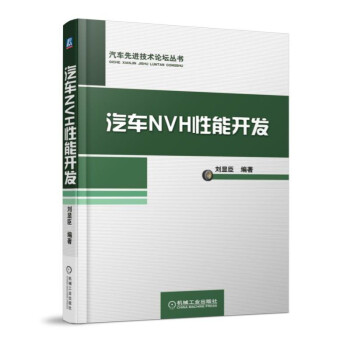

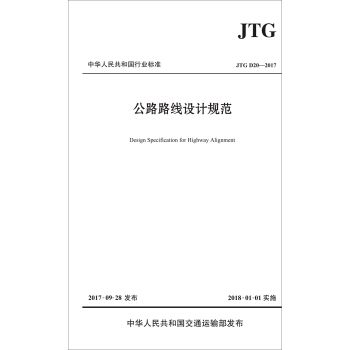
![铁电器件(第2版)/国外名校最新教材精选 [Ferroelectric Devices] pdf epub mobi 电子书 下载](https://pic.tinynews.org/12282814/5a4cac30N04715206.jpg)
